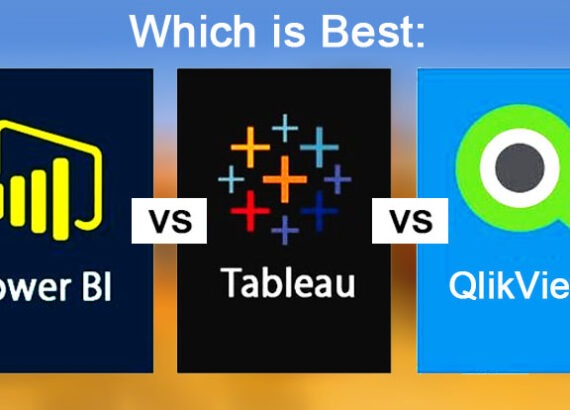The Ultimate Guide to Starting Your Journey in Software Development
Software development has become an increasingly vital field in today’s technology-driven world. From mobile apps to websites, software development encompasses the creation, design, and maintenance of various software applications and systems. Whether you are an aspiring developer looking to embark on a new journey or a curious individual interested in learning more about this ever-evolving field, this ultimate guide is here to provide you with a comprehensive roadmap.
Within these pages, you will discover essential steps, resources, and insights to help you navigate the world of software development, empowering you to embark on a successful and rewarding career in this exciting industry.
So, let’s dive in and explore the fundamental aspects of starting your journey in software development. Discover the essential skills, resources, and steps to kickstart your software development career and pave the way for success.
1. Introduction to software development
What is software development?
Software development is like being a wizard in the digital realm. It’s the process of creating, designing, and maintaining computer programs, apps, and websites that make our modern world tick.
The apps on your phone to the software that runs your favourite games, software development is the magical force behind it all.
The importance and relevance of software development
Software development is more important today than ever before. With technology becoming an integral part of our lives, the demand for skilled software developers is skyrocketing.
From healthcare to finance, every industry relies on software to streamline its operations, improve efficiency, and deliver cutting-edge products and services.
Overview of different software development roles
In the world of software development, there are various roles you can explore depending on your interests and skills. From front-end development, where you create the user interface that people interact with, to back-end development, where you build the behind-the-scenes infrastructure, there’s a role for everyone. You can also dive into fields like mobile development, and game development, or even specialize in emerging technologies like artificial intelligence or blockchain.
2. Choosing the right programming language
Choosing a programming language can feel like picking a flavour at an ice cream parlour. It’s important to consider factors like your project requirements, ease of learning, community support, and job market demand. Think about whether you want a language that’s beginner-friendly, versatile, or optimized for specific tasks. Don’t worry, there’s a programming language out there for every taste!
Popular programming languages and their use cases
From the classic and reliable Java to the trendy and versatile Python, there is a plethora of programming languages to choose from. Each language has its strengths, so it’s crucial to match the language to the task at hand. If you’re into web development, JavaScript is your go-to, while data enthusiasts might find solace in R or Python. The key is to experiment, try different flavours, and find the language that speaks your code-loving soul.
Resources for exploring and comparing programming languages
With so many programming languages out there, it can be overwhelming to pick just one. Thankfully, there are resources to help you navigate this digital jungle. Websites like Stack Overflow, GitHub, and Codecademy offer tutorials, forums, and interactive exercises to get you acquainted with different languages. You can also join online communities and chat with fellow developers to get insights and recommendations. Remember, it’s all about exploring and finding your coding language soulmate!

3. Learning the basics of coding
Understanding key concepts and terminology
Coding can sometimes seem like deciphering an alien language, but fear not! Every programmer starts with the basics. To get started, familiarize yourself with key concepts like variables, functions, loops, and conditionals. Understand the lingo, from loops looping to strings stringing. Once you crack the code of these fundamental concepts, you’ll be well on your way to becoming a coding maestro.
Introduction to variables, data types, and operators
Think of variables as the containers that hold information in your code. Data types define what kind of information those containers can hold. From numbers to text, data types are the building blocks of your code’s universe. And just like in math class, operators help you perform operations, like adding, subtracting, or comparing those variables. Once you grasp these concepts, you’ll have the power to manipulate data and create amazing programs.
Control flow and conditional statements
Control flow is like being the director of your code’s cinematic masterpiece. You get to control the flow of execution, decide what happens next, and turn your programs into interactive experiences. Conditional statements, like if-else or switch statements, allow your code to make decisions based on certain conditions. It’s like playing detective and giving your code the ability to choose its adventure.
4. Essential tools and resources for software development
Integrated Development Environments (IDEs) and code editors
Just like a carpenter needs his toolkit, a software developer needs the right set of tools. Integrated Development Environments (IDEs) and code editors are your virtual workspaces, where you write, edit, and organize your code. From feature-packed powerhouses like Visual Studio Code to the minimalist and speedy Sublime Text, there’s an IDE or editor that suits your workflow and style.
Version control systems and collaboration tools
Version control is the hero that saves your code from chaos and disaster. With version control systems like Git, you can track changes, collaborate with other developers, and revert to previous versions if needed. Collaboration tools like GitHub or Bitbucket take version control to the next level, allowing teams to work together seamlessly. Remember, teamwork makes the dream work, even in the world of coding.
Online learning platforms and coding resources
In the vast ocean of knowledge, online learning platforms are your trusty compass. Websites like Udemy, Coursera, and freeCodeCamp offer comprehensive courses and tutorials to help you level up your coding skills.
Don’t forget to explore coding communities and forums where you can find answers to your burning coding questions and connect with like-minded individuals. The internet is your oyster, so dive in and embrace the wealth of coding resources available.
Congratulations! You’re now equipped with the ultimate guide to embark on your software development journey. Happy coding, future developer!.3 Developing skills and expertise for specific roles in software development
5. Building a strong foundation through coding exercises and projects
Mastering the art of coding is crucial for any aspiring software developer. One way to achieve this is through regular practice with coding exercises and projects. Not only does it help solidify your understanding of programming concepts, but it also enhances your problem-solving skills.
Practicing coding with online coding challenges
Online coding challenges are a fantastic resource for sharpening your coding abilities. Websites like HackerRank and LeetCode provide a wide range of programming problems with varying difficulty levels.
By dedicating time to solving these challenges, you’ll gain confidence in your coding skills and improve your problem-solving approach.
Undertaking small coding projects to reinforce learning
Building small coding projects is an excellent way to reinforce what you’ve learned and put your skills into practice. Start with simple projects that align with your interests and gradually increase their complexity. Working on these projects will not only boost your coding proficiency but also give you a portfolio to showcase your abilities to potential employers.
Leveraging open-source projects for hands-on experience
Open-source projects offer an incredible opportunity to collaborate with experienced developers and gain hands-on experience. Contributing to open-source projects allows you to dive deeper into programming concepts while working on real-world applications. The collaborative nature of these projects also helps you learn from others and develop essential teamwork skills.
6. Collaborating with others in the software development community
Software development is not a solitary journey. Engaging with the software development community can provide valuable insights, support, and opportunities for growth.
Participating in coding communities and forums
Joining coding communities and forums such as Stack Overflow and GitHub can connect you with like-minded individuals and provide a platform to seek guidance and share knowledge. Engaging in discussions and answering questions not only enhances your problem-solving skills but also builds your reputation as a helpful and active member of the community.
Joining hackathons and coding competitions
Hackathons and coding competitions offer an exciting way to challenge yourself, test your skills, and collaborate with fellow developers. These events provide opportunities to work under pressure, think creatively, and build innovative solutions. Additionally, you may form valuable connections and gain recognition within the software development community.
Networking is an essential aspect of career growth in software development. Attend conferences, meetups, and industry events to connect with professionals in the field. Building relationships with experienced developers can open doors to mentorship, job opportunities, and a deeper understanding of the industry’s trends and challenges.

7. Career options and opportunities in software development
The field of software development offers a wide range of exciting career paths and abundant opportunities.
Exploring various career paths in software development
Software development encompasses diverse specializations, including front-end development, back-end development, mobile app development, data science, and more. Take the time to explore these different paths and identify the areas that align with your interests and strengths. This exploration will help you shape your career trajectory and make informed decisions.
Understanding the demand for software developers in different industries
From finance to healthcare, from e-commerce to entertainment, companies of all types rely on software developers to create and maintain their digital products. Understanding the demand in different industries can help you target your job search and find opportunities that align with your interests and goals.
Developing skills and expertise for specific roles in software development
As you progress in your software development journey, consider specializing in specific roles or technologies. Whether it’s becoming an expert in a particular programming language, mastering cloud technologies, or refining your user interface design skills, developing expertise in specific areas can make you a highly sought-after professional in the industry.
8. Balancing work and life as a software developer
Working in software development can be fast-paced and demanding, but it’s essential to maintain a healthy work-life balance for long-term success and well-being.
Effective time management techniques for busy developers
Time management is crucial for handling multiple projects and deadlines. Prioritize tasks, break them into manageable chunks, and use productivity tools like project management software or time-tracking apps to stay organized and focused. Regularly reassess your workload and don’t hesitate to delegate or ask for help when needed.
Taking breaks and practising self-care in a fast-paced industry
Working long hours without breaks can lead to burnout and diminished productivity. Remember to take regular breaks, both short and extended, to relax and rejuvenate. Self-care, whether it’s exercise, hobbies, or spending quality time with loved ones, is crucial for your overall well-being.
Finding a healthy work-life balance in the world of software development
Striking a balance between your professional and personal life may require setting boundaries and learning to say no when necessary. Communicate your needs to your team and manager, and establish realistic expectations. Remember that a healthy work-life balance not only benefits your happiness but also improves your productivity and creativity as a software developer.
Conclusion
As you wrap up this ultimate guide, you should now have a solid understanding of the key principles and steps involved in starting your journey in software development. Remember, this is just the beginning – software development is a vast and ever-evolving field that requires continuous learning and growth.
Embrace the challenges, stay curious, and never stop exploring new technologies and methodologies. With dedication, perseverance, and a passion for coding, you have the potential to create innovative solutions and shape the digital world. So, go forth, embark on your software development journey, and let your coding skills shine bright!

FAQ
1. Do I need prior coding experience to start my journey in software development?
Starting your journey in software development does not necessarily require prior coding experience. This guide provides resources and steps for beginners to learn the basics of coding and gradually build their skills.
2. How do I choose the right programming language to learn?
Choosing the right programming language depends on various factors such as your goals, the type of software you want to develop, and the industry requirements. Consider factors like popularity, community support, and job opportunities while selecting a programming language. Researching different languages and their use cases will help you make an informed decision.
3. Can I pursue a career in software development without a formal degree?
Yes, it is possible to pursue a career in software development without a formal degree. Building a strong portfolio, completing coding projects, and gaining practical experience through internships or freelance work can help you demonstrate your abilities to potential employers.
4. How can I stay updated with new technologies and advancements in software development?
Staying updated is crucial in the fast-paced world of software development. To stay current, follow tech blogs, join online coding communities, and attend industry conferences and workshops. Engaging in continuous learning through online courses, and tutorials, and experimenting with new tools and frameworks will help you keep up with the latest trends and advancements.
Thank you for reading 🙂
If you want to build your website at an affordable price contact: www.nextr.in
Read this: How To Become A Software Engineer/Developer In 2023


















